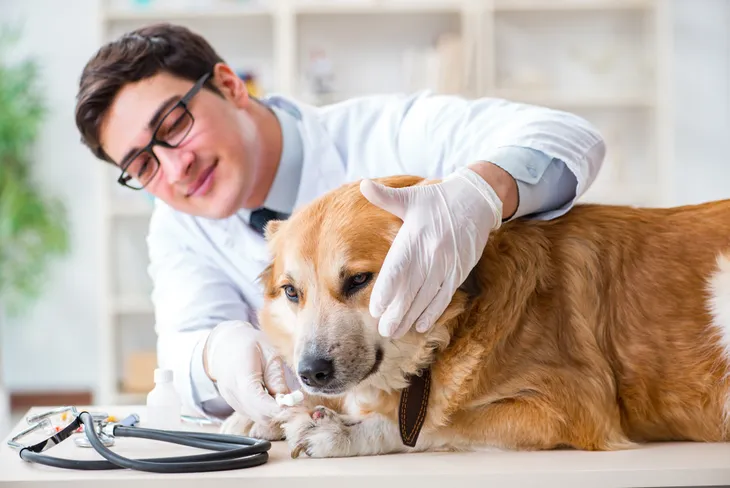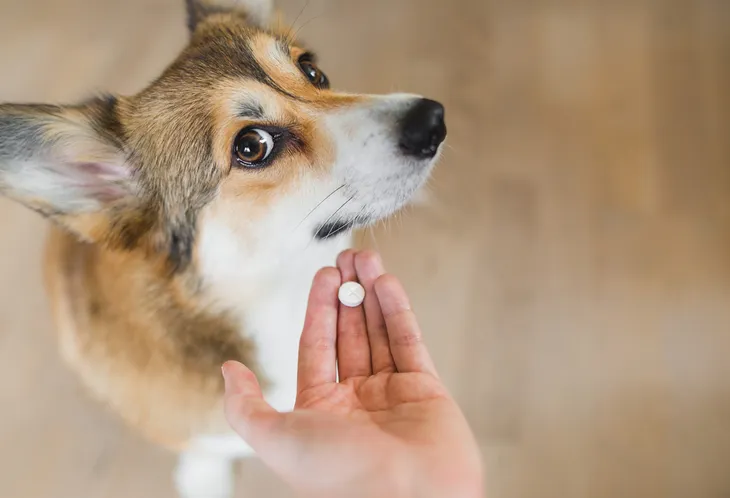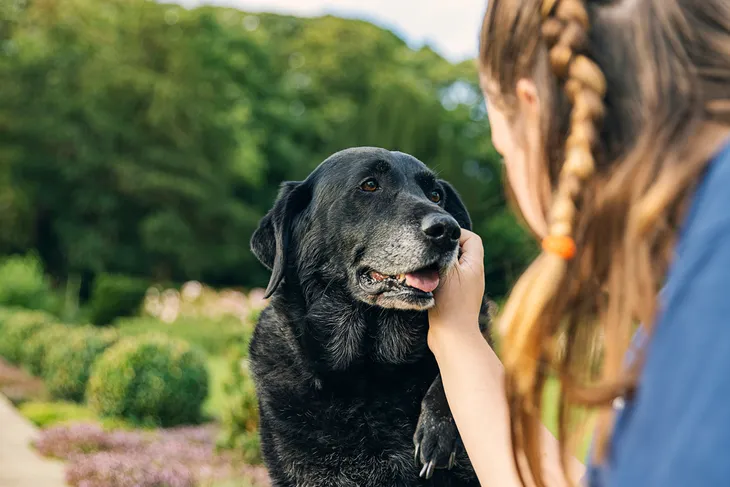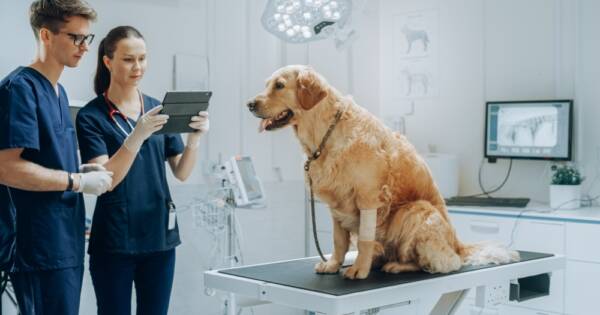No one wants their pup to get older, but aging is an inevitable part of life. As your dog enters their senior years you must pay attention to any behavior or mood changes. Since dogs can’t verbally communicate with us, noticing these types of changes can help us know when something is wrong.
Just like aging adults, aging dogs can begin to experience common ailments. This can include anything from changes in eating habits to not being able to ward off illnesses like they used to. Knowing the common ailments for aging dogs is important and can help you get your dog the treatment it needs as soon as an illness arises. Here are the common health problems you should be on the lookout for in aging dogs.
Cancer
Unfortunately, cancer becomes more common as a dog ages. It’s also the leading cause of fatalities in senior dogs. It’s crucial to be on the lookout for early signs of cancer in order to get your dog the treatment they need.
Signs of cancer in dogs include new lumps or bumps, changes in weight, or sores that heal slowly. Other signs include excessive panting, coughing, drooling, and extreme tiredness. If your dog has cancer, they may also experience difficulty eating, constipation, blood or mucus in their stool, or diarrhea. If you notice any of these symptoms, book an appointment with your vet.
Vision Loss
A gradual loss of vision is common in older dogs. In most cases, it’s caused by degenerative changes in their eyes, however, it can also be caused by an eye disease such as cataracts. If you think your dog is displaying signs of vision loss such as bumping into things, falling, or dilated pupils, take them to your vet to have them checked.
Unfortunately, there is nothing you can do for vision loss caused by old age. But the good news is if this does happen to your dog, they have other senses they can use that can help them navigate their surroundings. Just be sure to not move your furniture around, and always keep your dog on a leash when outdoors.
Hearing Loss
Just like vision loss, hearing loss is also common in aging dogs. It’s commonly caused by nerve degeneration and unfortunately, nothing can stop it from happening. The good news is there are ways you can help your dog adapt and live a happy normal life.
Since hearing loss is usually gradual, as soon as you start to notice the signs you’ll want to start deaf dog training. This will help them learn things like hand signals so you can still communicate with your dog. Other ways you can slow the progression of hearing loss is by cleaning and caring for your dog’s ears regularly.
Kidney Disease
The kidneys are vital organs that cleanse the blood of toxins and turn the waste into urine. But when the kidneys aren’t functioning as they should, toxins and waste can build up in the body and cause destruction in the body. In severe cases, it can lead to kidney failure. This is why you need to be on the lookout for signs of kidney disease in your dog.
Several factors can cause the kidneys to stop working properly such as a rupture of the bladder, a kidney stone that is blocking the urinary tract, and normal aging. If a kidney stone is to blame, be on the lookout for loss of appetite, weight loss, vomiting, and discoloring on the tongue. Your dog may also start having accidents in the house, may urinate more often, and may begin drinking more water than usual. If you notice any of these signs, take your dog to the vet.
Arthritis
Osteoarthritis is the most common form of arthritis and is a common problem in dogs — especially in senior dogs and large breeds. Arthritis happens when one or more of the joints become inflamed. This can cause swelling, stiffness, and even pain.
Signs your dog may have arthritis include limping, changes in the way they walk, reluctance to move, or avoiding the stairs. They may also lick or chew at the aching joint. While there is no cure for this progressive condition, recognizing it early can help you get your dog the treatment they require. The vet may prescribe medication, or advise changes to their diet and exercise.
Gum Disease
Oral health is just as important for dogs as it is for humans. If you don’t make it a habit to take care of your dog’s teeth at a young age they can begin to develop plaque and tartar on their teeth. This can spread under their gum line and cause swelling and gingivitis (gum inflammation).
If you leave gingivitis untreated, it can lead to periodontitis also known as gum disease. Gum disease can be detrimental to your dog’s health because it can spread the infection to their bloodstream which can cause serious damage to their organs. Symptoms of gum disease in dogs include bleeding or inflamed gums, discolored teeth, bad breath, and excessive drooling.
Diabetes
Diabetes is also a health concern for aging dogs and occurs from poor production and functioning of the hormone that regulates glucose in the body. PetMD explains this hormone’s job is to “help move glucose from the blood into the body’s cells where it is then used for energy.”
Diabetes can be hereditary but it is especially prone to certain breeds such as pugs, Samoyeds, cairn terriers, toy poodles, and miniature schnauzers. Female dogs and dogs ages 8 to 9-years old are also more at risk for diabetes. Be on the lookout for common signs of diabetes such as frequent thirst, weight loss, fatigue, slow-healing cuts, and frequent urination. If you notice any of these signs, take your dog to the vet.
Obesity
Ensuring your dog maintains a healthy weight throughout its life is important because it can have an impact on its health. Obesity can put your dog’s health at risk, especially when they grow older and become less active.
Senior dogs who are overweight may be more prone to illnesses including diabetes, joint problems, and certain types of cancer. To prevent obesity, make sure your dog is eating age-appropriate food and the right amount of calories. It’s also important to keep your dog active as much as they can safely endure.
Dementia
Just like humans, dogs can also experience loss of cognitive function as they grow older. This can put your dog at risk of developing dementia. Signs of dementia in dogs include confusion, disorientation, and whining or barking for no reason. Your dog may also have frequent accidents and may get lost in its familiar surroundings.
It’s important to note some of these symptoms can also indicate another condition such as hearing loss. It’s best to have them checked by the vet to determine the cause. Unfortunately, there is no cure for dementia but it may be manageable with some medications.
Another way you can help prevent cognitive decline is by providing your dog with food that promotes brain function. Speak to your vet for recommendations.
Heart Problems
Another ailment to be on the lookout for is heart problems. Congestive heart failure is among one of the common forms of heart disease. This happens when the heart is unable to pump blood efficiently. This can cause fluid to back up in the heart, lungs, and belly.
Signs of heart disease in dogs include difficulty breathing, unexplained vomiting, coughing, and exercise intolerance. If you notice any of these symptoms, take your dog to the vet immediately.













